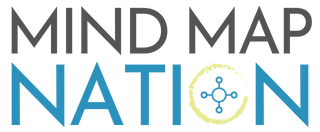Uncovering Your True Priorities
Have you ever found yourself struggling to make progress on your goals, despite your best intentions? Or felt drained by activities that you thought you wanted to pursue? If so, you're not alone. Many of us have a tendency to set goals that are influenced by our 9-to-5 jobs or societal expectations, rather than our true values and desires.
In my Empowering Mind Maps course , I teach a specific exercise called the " Perfect Day Mind Map " that helps participants visualize their perfect day, and in the process clarify what truly matters to them and how to align their actions with their priorities.
My perfect day consists of getting up at 5am to work out, cold shower, do visualization exercises and get to the cafe by 7-8am to do the bulk of my creative work. The afternoon is reserved for meetings and operational tasks, shut down my laptop by 5-6pm to spend quality time with friends and family or to read. Then I'd go into "monk mode" with 30-60 minutes of meditation by 8pm and get in bed by 9-10pm. All these activities 1) recharge my energy, 2) keep me grounded and 3) bring me closer to being a better creator, coach and human being.
One of the course students, Carrington, shared the following insight about her experience with the exercise:
"I love this exercise. I mapped my priorities 'what’s important to me' first and then did my perfect day. Interestingly I went back and re-wrote my priorities. I realised many goals didn’t align with my ideal day, I only believed myself to want them. My perfect day turned out to be simple and quiet and very humble in its needs. It truly helped me to be more productive and to let go of things that are draining my energy and taking me away from the best version of myself."
Her experience highlights several key takeaways from the Empowering Mind Maps:
1. Align Priorities with Actions
These maps, especially when done together, allows us to see alignments and misalignments between our values, priorities, and actions. Often we think we have a clear idea of our ideal lives, be it more money, more adventure, more friends, healthier habits, etc. When in reality, it's our actions that are indicative of our true priorities.
So when our actions don’t align with our stated desires, we need to first acknowledge the discrepancy, and then either 1) decrease those goals or 2) increase our commitments to make those goals our real priorities.
Having these elements visually mapped out means we can’t lie to ourselves, which is the biggest barrier to growth.
2. Silence the EGO
EGO stands for External Guide Only, that voice that tells us that we should like something regardless of whether we actually do.
Carrington stumbled upon the same discovery that I had when making the “How can I have more fun” map: what’s fun for me is very different than what others consider fun.
Understanding this means I can craft my personal filter to evaluate whether certain activities are in fact “draining my energy and taking me away from the best version of myself.”
3. Improve Metacognition
The 10 maps work together to get us thinking about how we think. In other words, to enhance our metacognition abilities.
Metacognition is an important mental skill that involves reflecting on the quality of our thinking and learning and making adjustments to improve it. It's linked to a number of positive outcomes, like improved academic performance, better problem-solving, and increased self-regulation. On the latter, it's especially beneficial in detaching us from our emotions for a moment, so that we can see reality more clearly.
Deep Self Discovery
Unlike surface-level goals that change actions and habits, the insights generated from these Maps target the very mental and emotional processes that influence our actions. In other words, they ask why we do something rather than how to do it.
Fair warning before you begin: during our course retrospective last week, some participants noted taking longer than expected especially with the first few maps because the questions opened up brand new territories of self discovery. So take your time, go deep, and find the ingredients for lasting and meaningful change this year.
Thanks for reading as always. Here is a free tutorial to the Perfect Day Map:
I’d love to hear from you:
Have you done any of the Empowering Mind Maps?
What are some of your discoveries?
Tweet or DM at me on Twitter/Instagram @shengsilver.
Make the most of your mind maps
Thanks for reading this article. If you found it useful, you can get a new mind map in your inbox every week. Epiphany is your dose of structured thinking and ordered chaos.

